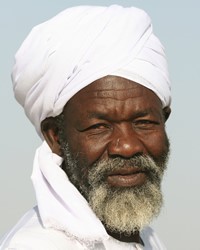Guhayna in Sudan

Photo Source:
Copyrighted © 2026
urosr - Shutterstock All rights reserved. Used with permission |
Send Joshua Project a map of this people group.
|
| People Name: | Guhayna |
| Country: | Sudan |
| 10/40 Window: | Yes |
| Population: | 2,500,000 |
| World Population: | 2,500,000 |
| Primary Language: | Arabic, Sudanese |
| Primary Religion: | Islam |
| Christian Adherents: | 4.00 % |
| Evangelicals: | 0.70 % |
| Scripture: | New Testament |
| Ministry Resources: | Yes |
| Jesus Film: | Yes |
| Audio Recordings: | Yes |
| People Cluster: | Arab, Sudan |
| Affinity Bloc: | Arab World |
| Progress Level: |
|
Introduction / History
There are three main groups of Arabs who live in the White Nile/Sudan area: the Gaalin, the Guhayna, and the Kawahla. Not much is known about those who make up the Guhayna people group. However, a fair amount is known about the Sudanese Arabs. The Sudanese Arabs find their heritage in the Bedouin who wandered the deserts of Saudi Arabia centuries ago. They are now a diverse group who find their commonality in the language of Arabic and the religion of Islam. The Guhayna Arabs are the largest people group living in the North African country of Sudan, they have spread throughout the countries of North Africa and the Middle East, but the majority can be found living in either Sudan or Egypt.
What Are Their Lives Like?
The single thread of a common culture binds these Guhayna with other Arabs from around the world. Aspects of pure Arab life, such as rigid codes of honor, loyalty and hospitality have remained strong in their culture.
The role of men in the Guhayna Arab society, as in all other Arabic cultures, is extremely important. They value children, especially sons. Women are in a subservient position but are more liberal and dress more freely than many of their counterparts around the world.
What Are Their Beliefs?
Islam is the religion of the majority of Guhayna Arabs. It is very common to find them stopping and bowing to pray whenever the call to prayer is heard, whether they are on the roadside or in their shop or business. They also practice the other four pillars of Islam, including the ritual fasting and the pilgrimage to the holy city of Mecca. The rules that govern society, including regulations concerning marriage, divorce, inheritance, taxation and warfare, are all found in Islam's holy book, the Koran.
What Are Their Needs?
The historical link between Arabs and the Muslim religion is still strong. There are few Sudanese Arab Christians, and conversion from Islam to Christianity is not well-accepted and often comes with severe consequences. While there have been Christian workers in Sudan for many years, most concentrate on reaching southern animistic people and neglect the country's Muslim majority.
Prayer Points
Pray for Guhayna family elders to have such a strong desire for spiritual truth that they will be drawn to the King of kings no matter what the cost.
Pray for Christ followers to take the savior to the Guhayna people in Sudan.
Pray for Guhayna disciples to make more disciples throughout Sudan.